Tips for Increasing Breastmilk Supply

Published Date: 10/22/19
Topical Relevance
How to build and maintain a healthy supply of breastmilk
30 Second Summary:
The most important thing to keep in mind is the concept of demand and supply. The more your breasts empty out, the more breast milk you will be able to produce.
Babies naturally tend to have shorter but more frequent feeding sessions which can help drain the breasts, signaling your body to increase production.
Supplementing with formula and scheduling feedings can slow milk production because when your infant breastfeeds less, your body produces less milk.
Nursing frequently and efficiently as well as offering both sides can keep your supply up.
In this article:
Am I making enough breast milk?
What causes low breast milk supply?
How do I know if my breast milk supply is low?
What should I do if I'm not making enough breast milk?

Am I making sufficient breastmilk?
The breastfeeding journey is different for every woman and in the early days, many new moms wonder, "Am I making enough milk?"
It's easy to be worried since you often can't see how much you're producing, but often, there's no need for concern as long as your baby is gaining weight and growing along with your pediatrician's expectations.
However, decades, perhaps centuries, of misconceptions about breast milk and supply leave mother's concerned. Let's start by clearing some of them up.

Common misconceptions about breast milk production
If your baby nurses frequently, it doesn't mean that your supply is low. Breastfed babies tend to feed more than formula-fed babies because breastmilk gets digested faster. Also, frequent feeding may be a result of normal cluster feeding or your baby’s need for contact with you.
Fussiness does not necessarily mean your baby is hungry. Remember, babies can't communicate without fussing and crying - they may be hot, have a headache, or just need some snuggles.
When your breasts stop leaking, it doesn't mean your supply is low. As your body adjusts to your baby’s needs, your breasts will naturally stop leaking.
Getting little when you pump is also not an indicator of low milk supply. The type of pump you use and your own pumping skills also affects the amount you get when you pump. It is also normal for pumping output to decrease over time.
Increased nursing frequency can indicate a growth spurt, not low milk supply. During a growth spurt, your baby will want to breastfeed more often and this will signal your body to increase milk production.
Shorter nursing sessions also don't indicate low supply. As babies grow older and become more efficient at nursing, they may not need to nurse for as long as they used to.
However, if you have any breastfeeding fears, do not be afraid to speak up.
Talk to your doctor or your baby's doctor so you can know for sure whether or not your supply is actually low.
RELATED: IS BREAST REALLY BEST? FIND OUT
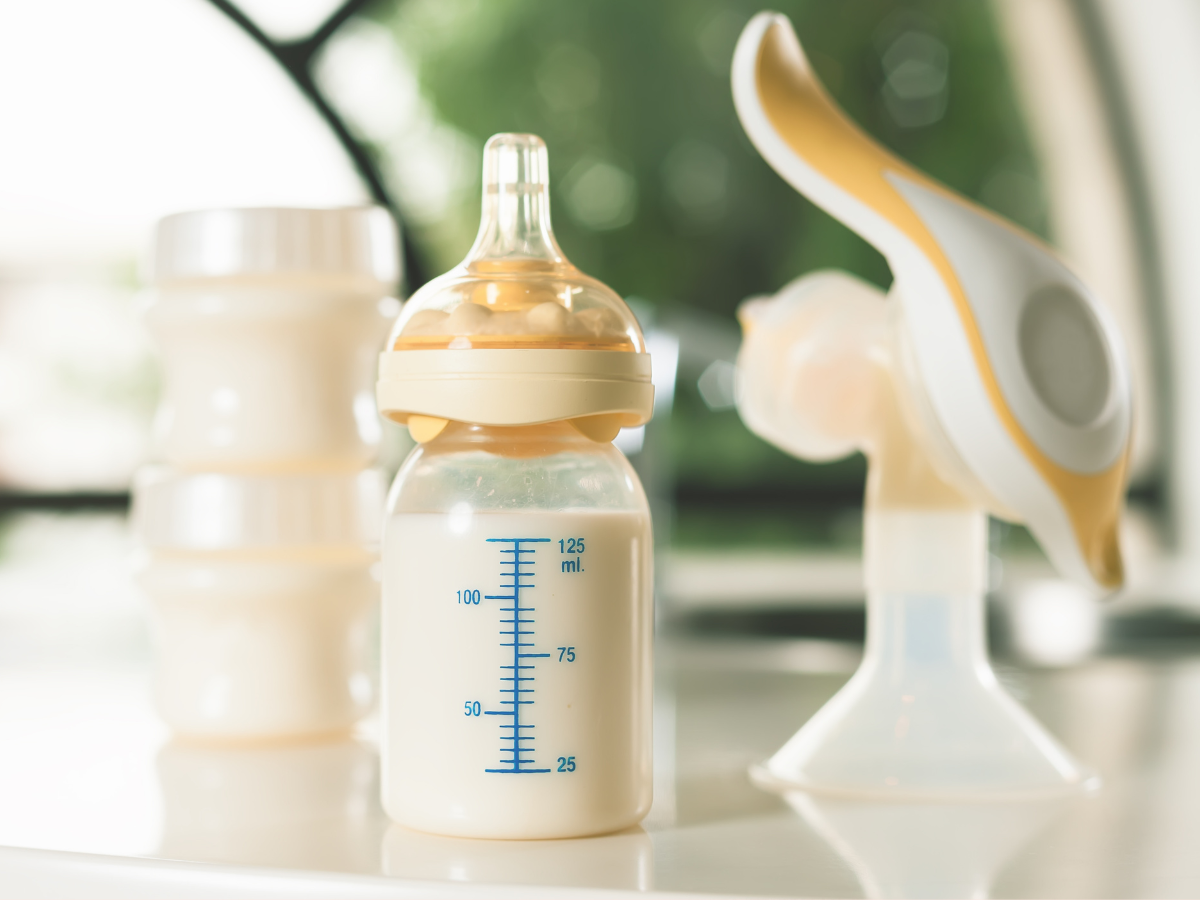
What causes low breast milk supply?
In some cases, a mother does actually have low supply and there are several factors that can cause, or contribute, to it.
Supplementing
If you regularly supplement your baby’s meals, you will lower your own production. As you nurse or pump, the demand placed on your body signals it to increase production.
Waiting too long to start breastfeeding
In the earliest days, your body still needs time for your milk to come in, and nursing early and frequently is the best way to help signal your mammary glands that it's go time.

Scheduling your feedings
Scheduling feedings, rather than nursing on demand, reduces supply. When babies are put on feeding schedules, there is more time in between feedings, which lowers production.
Stopping a feeding before your baby is sated
Breastfeeding is supply and demand - your supply keeps up with what your baby needs. Let them nurse as long as they need to, which helps your body increase milk production and meet those demands.
Pacifiers
Pacifiers significantly reduce the amount of time your baby spends at the breast, which can cause your supply to drop.
Frequent bottle feeds
Babies have to work much harder to get milk from your breast than they do to get it from a bottle. They may start to prefer it over nursing.
Breastfeeding on only one side
An emptier breast will work harder to produce more, so don't let your baby feed on only one side. Switch between breasts, especially if you are trying to increase breast milk production.
Not feeding frequently
Our Kiinde Lactation Team is sharing their 5 realistic and effective Tips for Increasing Your Breastmilk Supply, in our latest KiindeEDU post.
— Kiinde (@KiindeLLC) May 20, 2021
Click the link below to read more! https://t.co/aG4aJj29T8 pic.twitter.com/0M7kK1zeRM
Some people will tell you to NEVER wake a sleeping baby, but in those first few weeks, it's crucial that you do. Feeding them every two hours during the day and every four hours at night will help with milk production and ensure your baby is getting adequate nutrition.
Premature birth
If your baby is born prematurely, your milk production may be low in the early weeks.
Maternal obesity
Maternal obesity can impact both production and the nutrient makeup of breast milk.
Pregnancy-induced high blood pressure
Certain medications used to manage preeclampsia can lead to low breast milk production.
Mother's health
Medical conditions, like poorly controlled insulin-dependent diabetes, can impact breast milk supply. In addition, conditions like anemia, hypothyroidism, previous breast surgery, and hormonal issues like PCOS can cause low supply. Hormonal birth control, medications such as antihistamines and decongestants as well as smoking are also other culprits.
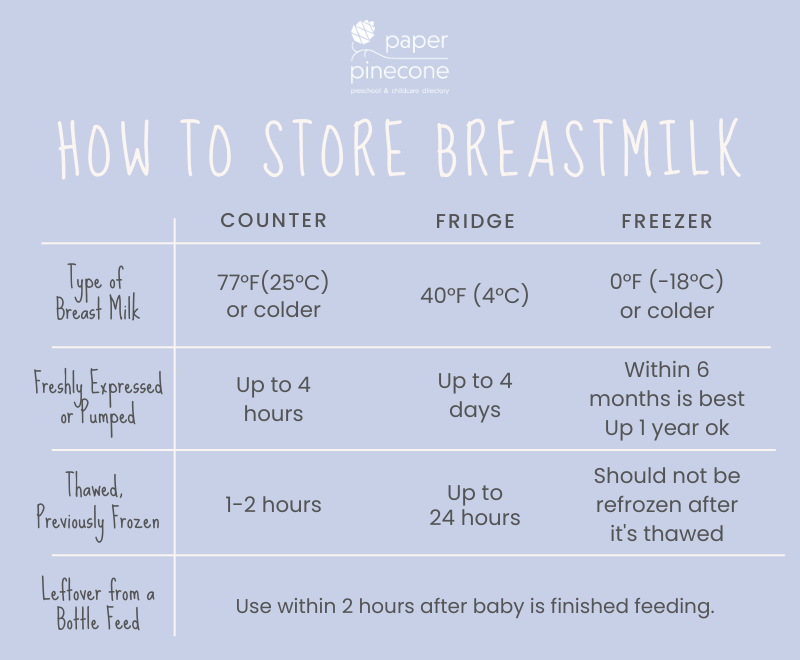
Problems latching
A baby with a lip or tongue tie may have trouble latching properly, and this can impact your supply. If your nipples are flat it can cause latching issues, but temporarily using a nipple shield can help.
Baby's health
Some health conditions such as jaundice cause complications in the breastfeeding process, leading to insufficient milk supply which is why it's important to check with your pediatrician if you have concerns you aren't producing efficient milk.
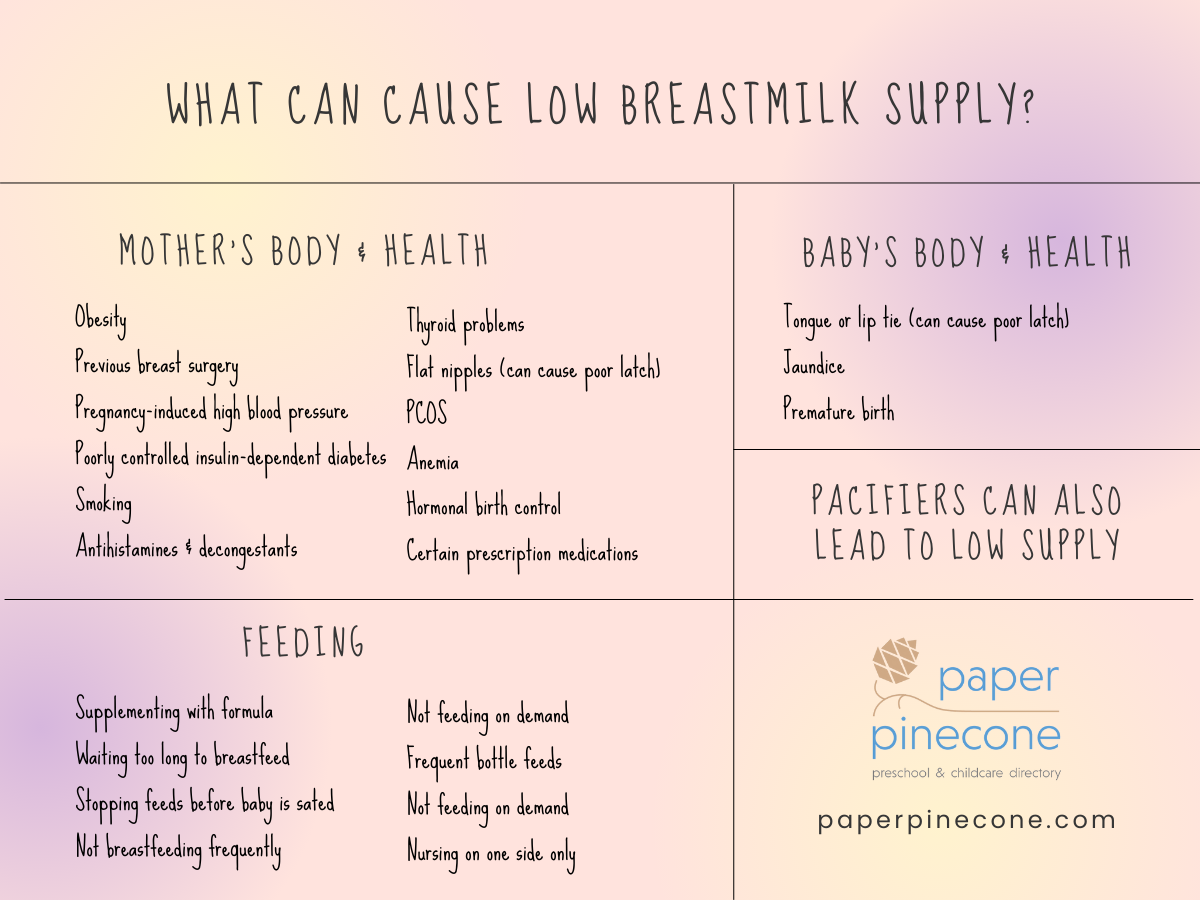
How do I know if my breast milk supply is low?
Rest assured that most women can produce enough milk as babies have tiny stomachs.
At birth, a newborn's stomach is about the size of a cherry and by day two, it's only the size of a walnut. Day three to five is when milk volume starts to increase for most women.
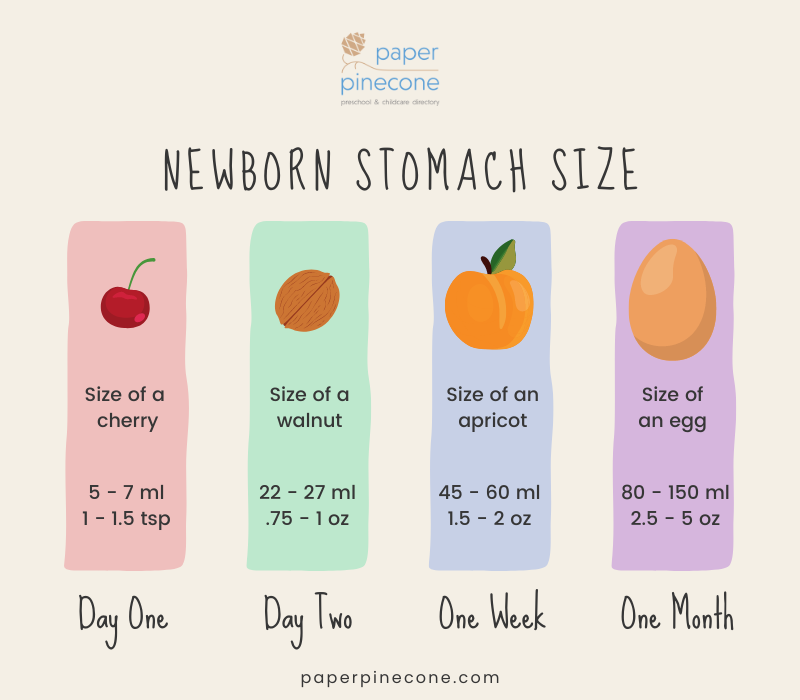
Some signs that you are producing ample milk include:
You can see or hear baby swallowing when nursing.
Baby's cheeks are full and not sucked in while feeding.
Baby is content after nursing, releasing the breast on their own.
Your infant is gaining weight - approximately 5.5-8.5 ounces a week until about four months old.
Your child is having enough wet diapers - generally 1-2 wet diapers the first few days after birth and then you can expect 5-6 wet diapers a day.
RELATED: SLEEP TRAINING HAS A FASCINATING HISTORY. READ IT HERE

What should I do if I'm not making enough milk?
If you need to increase your breast milk production, there are several things you can do and many remedies that can help.
RELATED: NEW DRUG APPROVED TO TREAT POSTPARTUM DEPRESSION

MUST-READ: SELF-SOOTHING IS A MYTH - READ THE TRUTH
Tips for increasing your milk production
The main idea behind breast milk production is demand and supply. Removing more milk from the breast, and doing so frequently, will lead to more milk production as less milk is retained in the breasts.
Nurse frequently and until your baby is sated. Keep feeding them as long as they are actively nursing. Aim to breastfeed at least every 2 hours during the day and at least every 3 to 4 hours at night.
Nurse efficiently. If your breast milk is not being efficiently drained from your breasts, your supply will be reduced. Position them properly and make sure they are latching well.
If your baby is having feeding problems, be sure to express milk between and after nursing sessions to improve lactation. A lactation nurse can help with latching issues.
Be sure to offer both sides at each feeding. When your baby drains one breast, offer the other. Make the switch whenever baby falls asleep or starts comfort nursing.
Avoid all solids, water, and formula for babies younger than six months and exclusively breastfeed. If you are supplementing with formula, consider weaning from formula gradually and nurse or use a breast pump to increase breast milk supply.

Add pumping sessions between and after nursing sessions to drain breasts and to increase the frequency of doing so. Keep pumping for at least 2 to 5 minutes after you see the last drops of milk.
Take care of yourself. Try to get enough rest and sleep whenever you can. Drink plenty of liquids and eat a well-balanced diet.
Whenever possible, avoid pacifiers and bottles. Let your little one meet all her suckling needs at the breast when possible to boost breast milk supply.

Consider taking a galactagogue. Galactagogues are substances that help produce milk in lactating mothers. They may come in the form of herbal remedies such as blessed thistle and alfalfa as well as common ingredients like fennel seeds, oats, and flaxseed that you can use to make lactation cookies. Be sure to consult your doctor before using herbal supplements to make sure they are safe for you.
If none of these tips prove effective, reach out to your doctor to find out how best to address the issue.
RELATED: WHY YOUR BABY CRIES WHEN YOU PUT HER DOWN

Natural remedies to increase breast milk supply
Galactagogues are substance that increase breast milk. These include certain foods, herbs and spices, as well as prescription medications.
Remedies for increasing breast milk supply include:
Foods and herbs to naturally enhance lactation
Breastfeeding mothers need to eat well and drink plenty of water. In addition, here are some foods that are known for increasing milk supply:
Oats - Try having a warm bowl for breakfast or prep overnight oats for a super quick meal the next day.
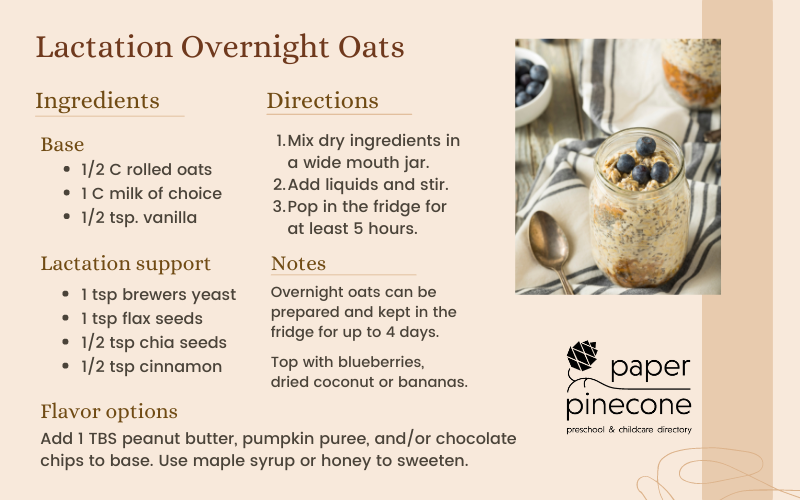
Brewer's yeast contains protein, iron, B vitamins, and other nutrients. You can mix it into smoothies or your oatmeal.
Milk thistle, blessed thistle, and fennel seeds are also known to increase your breast milk production. You can find many of them together in special teas such as Mother's Milk Tea and Milkmaid Tea. Pill versions are available as well.
Fenugreek seeds are a common food to improve supply as well but note that they are part of the same plant family as peanuts, chickpeas, and soybeans so avoid them if you are allergic to any of those foods. Fenugreek is also available in pill form at the drug store.
Cinnamon is a tasty way to increase milk flow but don't eat it with fenugreek as it can cause a drop in blood sugar. Pair your lactation cookies with a glass of warm milk with a sprinkle or two of cinnamon powder before bed.
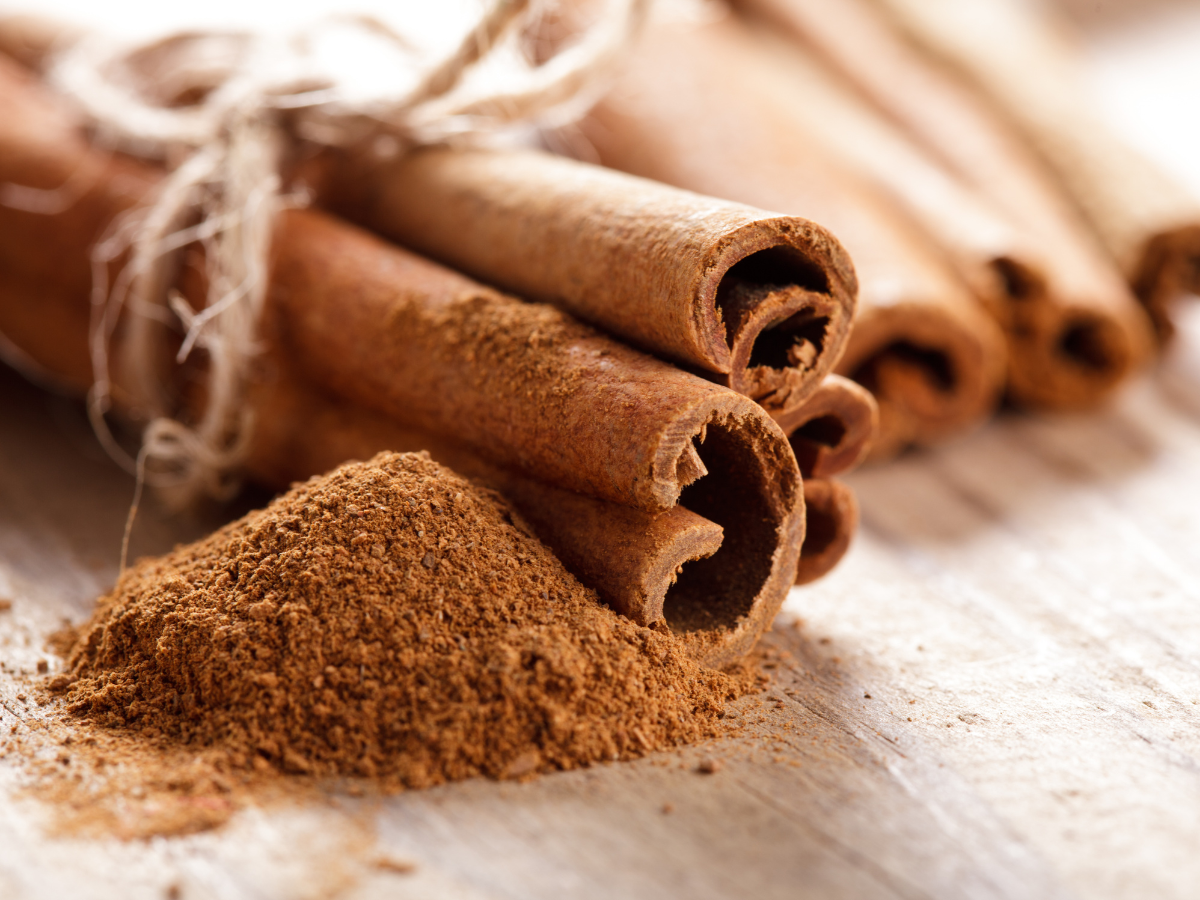
In India and Turkey, breastfeeding women eat garlic cloves to increase milk supply. Breastmilk flavor can change depending on what breastfeeding mothers eat and one study showed that babies of mothers who ate garlic actually nursed longer so enjoy a few garlic cloves in your favorite savory foods to entice baby to eat longer.
Lactation cookies or no-bake bites can be a yummy way to get in a combo of oats and brewer's yeast. Add maple syrup and chocolate chips to make your own custom flavors.
One study showed that pumpkin, tofu, egg, chicken, and fish can help to increase your breast milk. Serve with whole grains to get your essential vitamins.
Cumin seeds are also thought to be beneficial. You can drink warm water with soaked cumin seeds or add cumin powder to lukewarm milk for a bedtime drink.
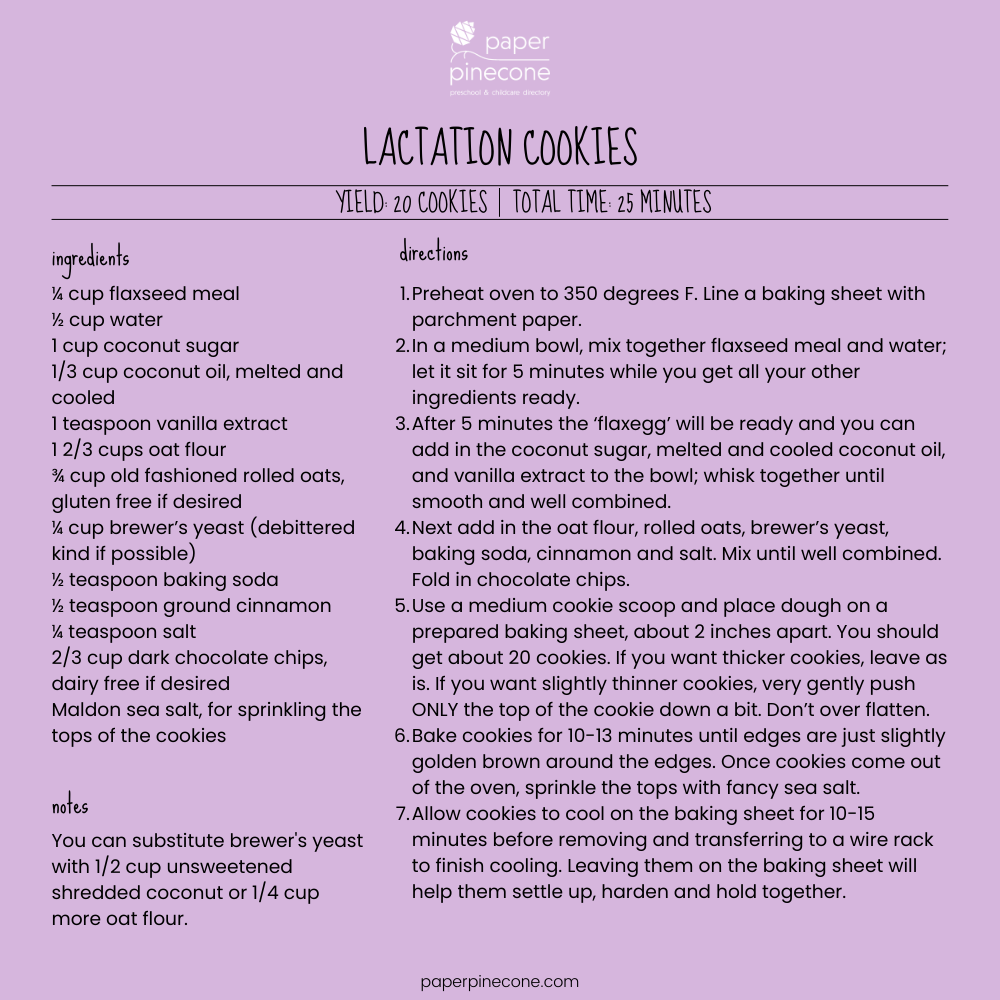
lactation cookie recipe to increase breastmilk
Getting breastfeeding support
While nursing can come easy for some, many women also find that it takes work, and there are several resources that can help.
National Breastfeeding Helpline for free: (800) 994-9662 (English and Spanish)
Reach out to your local La Leche League and check out their resources.
Your local hospital likely has a lactation consultant who can assist you or you can search for a private International Board Certified Lactation Consultant (IBCLC) through the United States Certified Lactation Consultant Association.
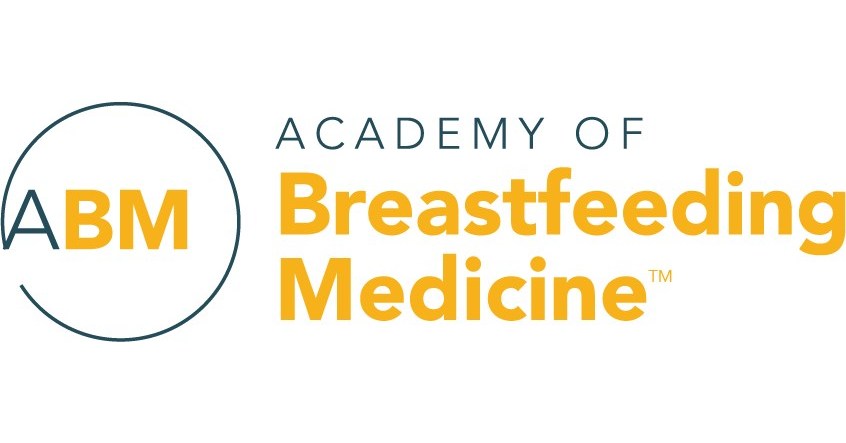
RELATED: 10 TIPS TO WEAN YOUR BABY OFF THE BOTTLE
Final Thoughts
As long as your baby is feeding well and gaining weight, you are doing fine. The amount of milk you produce is determined by your baby.
The more she needs, the more you will produce naturally. So, breastfeed as much as you can, and express whatever is left over.
Additionally, it can be helpful to express your concerns with your parenting community such as a breastfeeding support group to help alleviate stress and put your mind at ease.
Most importantly, it is important to understand that you are not alone on this parenting journey.
Paper Pinecone is the #1 most trusted childcare directory giving parents access to the best preschools and best daycares near you. Parents always search free and childcare providers always list free.

Send inquiries about the best daycares and preschools to [email protected].
Connect with us for advertising opportunities at [email protected]
This post contains affiliate links.
- stacey's blog
- Log in or register to post comments